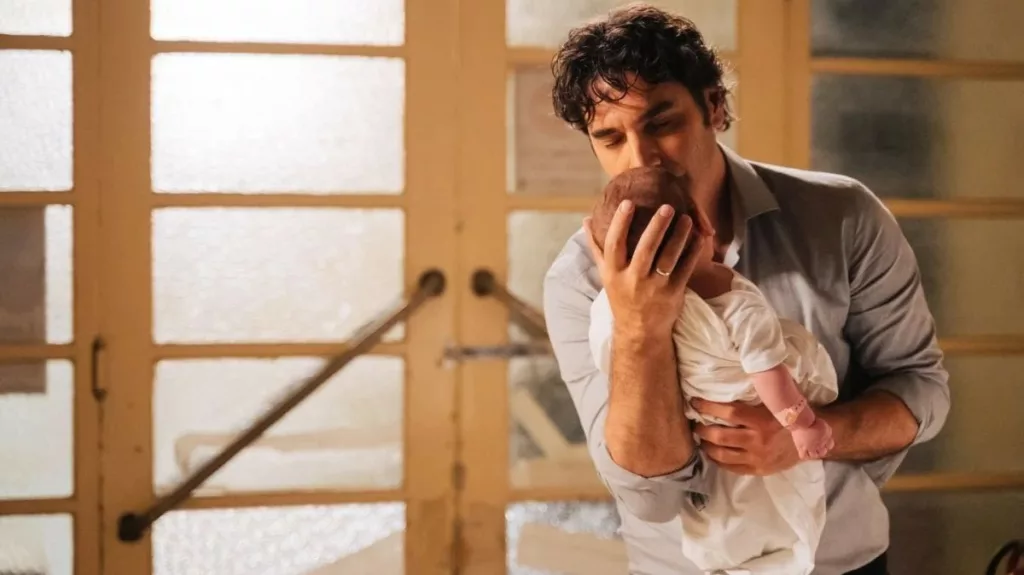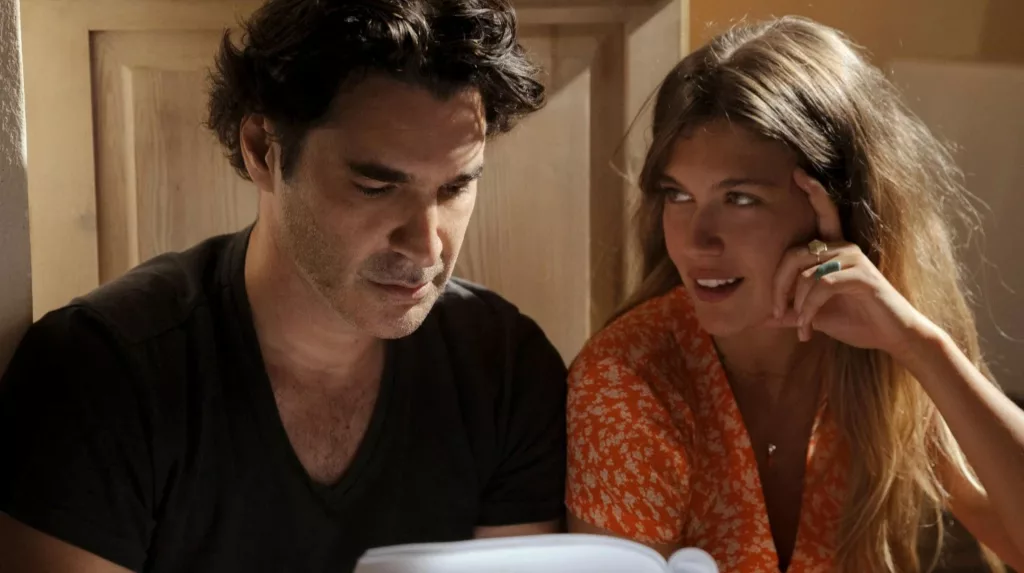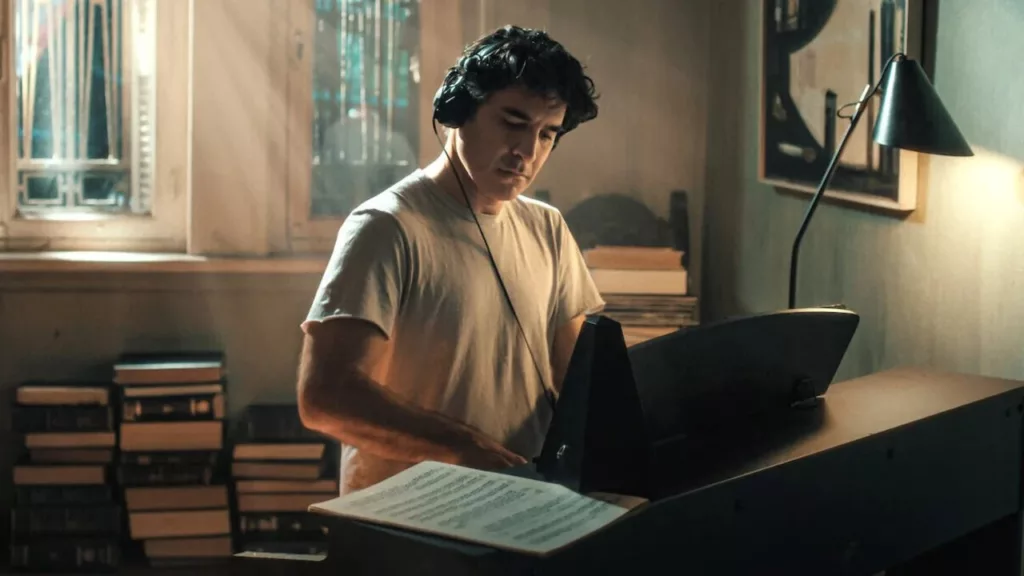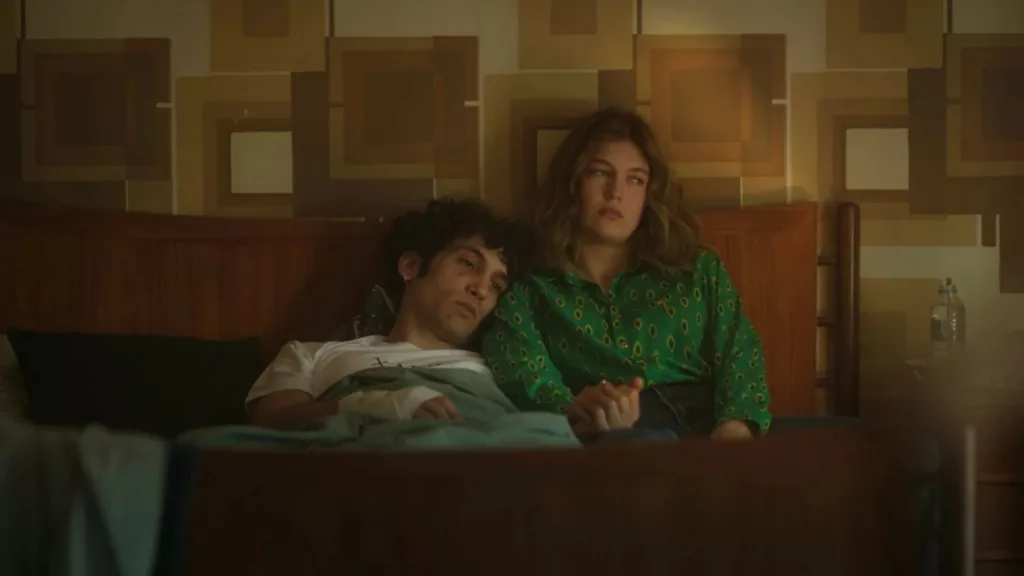The Greek mystery drama Maestro in Blue returned for a second season on Netflix, picking up in the aftermath of the first season’s dramatic events. Season one centered around a forbidden romance in the idyllic island town of Paxos, disrupted by the disappearance of the abusive Charalambos. His fate left lingering effects as many characters moved on in their lives.
Now settled in Athens and still haunted by the past, Antonis strives for normalcy in college alongside Klelia. Back in Paxos, Maria searches for peace without her husband while battling inner demons. Orestis balances new fatherhood with old emotions reignited by Klelia’s proximity to the city. Under the surface, dangers of exposure threaten due to a curious detective’s investigation.
This season traded coastal escapes for complex personal journeys. The intimacy of one-on-one scenes gave nuanced depth to the characters’ turbulent psychological states. Honing in on the human effects provided grounded insight far more than mystery plot progression.
While season one skillfully wove together romance and mystery, season two prioritized emotional fallout over compelling external tensions. Despite talented performances, dragging dialogue dulled the drama at times. Yet its empathy for the shadows people live in still resonated powerfully. Overall, Maestro in Blue season two traded thrills for feels in a storytelling shift reflecting life’s turns after trauma.
The Intertwining Tales of Paxos
The small island town of Paxos continues to weave complex human dramas in the second season. While new mysteries emerge, the lingering impact of past events also shapes each character’s journey.
For Maria, newfound independence brings bittersweet change. Free from abuse, she navigates single motherhood and hidden pains, seeking healing through community. Yet remnants of fear still haunt when suspicions rise anew.
Klelia and Antonis start over in bustling Athens, but find city life holds its own challenges. College brings Klelia connection, yet also heartbreak as an ill-fated romance runs its course. Antonis strives to outpace trauma’s grip, though ghosts linger closer than he’d like.
Orestis balances parenthood and passion, as duties to his daughter conflict with the love rekindled for Klelia. Alexandra battles postpartum shadows alone at first, until maternal bonds remind her that brighter days will come.
Back in Paxos, Sophia faces hard truths about leaving Fanis, the man and the politics, to live fully as her own. And through it all, a devoted detective’s questioning inches ever closer to hidden truths that some will do much to conceal.
This season showcases the depth and nuance in each character, giving room for their quiet transformations to shine through. Though some arcs feel less developed, the storytelling excels at exploring how personal relationships both heal and hurt us. Overall, it builds skillfully on lingering questions from season one, keeping viewers invested in this remote community’s intertwining tales, where mysteries and surprises remain around each rocky shore.
The Journey of Healing
Many of the characters in Maestro in Blue’s second season find themselves traveling difficult roads of personal growth and recovery. Facing the aftermath of past traumas, each works through the challenges in their own way.
Klelia puts distance between herself and the painful memories of Paxos, pursuing her music studies in Athens. But starting over isn’t easy, and old wounds are slow to fully heal. Through new friendships and hard lessons about toxic relationships, we see Klelia gradually rebuilding her strength and self-worth. Though the path isn’t always smooth, her resilience and passion for her art help guide her toward a brighter future.
Maria’s journey is perhaps the most emotional. For so long, she lived in suffering without escape from her husband’s cruelty. In his sudden absence, she must forge a new identity and purpose entirely alone. Visited by haunting doubts, Maria leans on faith and the support of others to let go of the survival instincts that served her in the past but now hold her back. By opening up about the darkness in her life and dedicating herself to helping women in similar situations, Maria takes the brave first steps to reclaiming her voice and humanity.
Orestis escapes into his music and new fatherhood, yet he cannot outrun the ghosts of his choices. As past and present responsibilities come into conflict, he grapples with guilt, lost love, and the reality that some wounds can never fully heal. But when a renewed closeness with Klelia brings old feelings to light again, Orestis faces tough questions about redemption and second chances.
Across moving and complex journeys, the characters develop in ways influenced equally by past traumas and present circumstances. Each performance, especially from Stefania Goulioti as Maria and Yannis Tsortekis as Klelia, deeply embodies the messy, uneven process of navigating grief and growth. In them, viewers find mirrors for healing of their own.
Themes Explored in Depth
Maestro in Blue dug deeper into difficult themes in its second season. While the first season tackled issues of homophobia and secrecy, this new batch of episodes delved with more intensity into abuse, sexuality, and the impacts of past trauma.
Unsurprisingly, characters continued grappling with the ramifications of murder committed to protect someone from homophobic violence. Antonio, in particular, faced ongoing mental anguish through brutal hallucinations. His troubled mind reflected how scars from such harrowing acts don’t heal overnight. Moving to start fresh in Athens brought little relief from the past catching up.
Characters also explored sexuality and relationships in rawer ways. Klelia dealt with a toxic new romance, exposing possessive behavior in some men. Orestis remained torn by his feelings for multiple women in his life. Their messy situations highlighted the daily struggles many face in pursuing intimacy and love.
A less explored theme in season one—postpartum depression—took center stage through Alexandra’s harrowing experience. In emotionally powerful scenes, she vividly portrayed the isolating pain too many new mothers face alone. Her struggles showed mental health was equally important as physical health for both parent and child.
While returning to these heavy subjects, I ran the risk of feeling redundant, but the show handled them with care, depth, and understanding. Facing difficulties directly through complex, flawed characters felt meaningful over glossing over troubles.
Frequent theme shifts also keep the show refreshing and ensure its portrayals of very real issues reach wider audiences who may find themselves or loved ones within the story. Overall, plunging deeper into tough themes in season two demonstrated Maestro in Blue’s ability to have thoughtful conversations and bring overlooked topics into the light with compassion.
Recapturing Intimacy: Visual and Auditory Craft in Maestro in Blue Season 2
While the storytelling in Season 2 may not match the tight focus of its predecessor, Christoforos Papakaliatis’ directorial prowess remains evident in its presentation. As with Season 1, the Greek landscapes provide a vivid backdrop, with Paxos’ rocky shores and Athens’ bustling streets brought to life through sweeping aerial shots and intimate close-ups. Masterful use of light and shadow enhances the mood in every scene.
Musical selections continue to add nuance, from gentle piano melodies mirroring personal turmoil to island-flavored instruments building tension during climactic moments. Careful integration of original songs and covers weaves a sonic tapestry that supports the emotional arcs. Standout performances resonate through both vocal and instrumental selections, showcasing the director’s appreciation for music’s storytelling abilities.
Papakaliatis’ technical skills are also on full display. from complex dialogue scenes delivered through thoughtful shot selection and editing to naturalistic cinematography that places viewers amidst the intimacy of hushed conversations or heated arguments.
Even in darker subject matter, passion for visual and aural craft ensures the viewers remain fully engaged in the intricacies of characters’ intertwined lives. Though Season 2 spreads its focus, Papakaliatis’ directorial mastery keeps the audience rapt as personal drama unfolds in painterly detail through the lens.
The Island’s Untied Knots
While the picturesque Greek island of Paxos provided a captivating backdrop for startling secrets in Season 1, Season 2 casts a wider net. Where the debut season masterfully unwound a single mystery surrounding controversial figure Charalambos, the aftermath in Season 2 left various characters adrift on unmoored waters.
We rejoin familiar faces, adjusting to new normalcies in the wake of last-seen events. Orestis cares for his newborn daughter in Athens, yet Klelia remains on his mind, now enrolled at his university alongside her brother Antonis. Both struggle with private demons stemming from that fateful summer. Maria begins to find independence after years under Charalambos’ dark shadow.
However, scattering its storylines across the mainland and beyond, Season 2 lacked the laser focus that made Season 1 so gripping. Multiple moving pieces tried to capture the audience’s attention rather than weaving together cohesively. The slow burn of Season 1 ignited intrigue with each answer uncovered; Season 2 dispersed this energy across disparate threads with less payoff.
Satisfying resolutions also proved elusive this time. A new detective muddied the waters rather than clarified them. Fanis met an abrupt end but left ambiguities in his place. While personal growth emerged for some, overarching mysteries only multiplied without a clear path forward. Season 1 tied a neat bow with its pulse-racing finale; Season 2 left available ends fluttering freely without confidence in where, or if, they may land.
The rugged shorelines and tight-knit community so key to Season 1’s charm took a back seat as well. While meaningful character arcs progressed in isolation, the very heart of the show seemed to lose its way upon scattering to the winds. Season 2 remained a visually stunning Greek trip but lost some of the magic that first enchanted viewers in the tight-woven intrigue of Season 1’s island-bound story.
The Inspector’s Investigation
Maestro in Blue puts forth another compelling season of drama on the small screen. While relationships and lives were forever changed in the climactic finale of season one, season two delved deeper into the aftermath.
We rejoined familiar faces as they each grappled with the costly decisions from their past in their own way. Antonis struggled with guilt as his visions haunted him. Maria set out on a journey of healing after enduring abuse. Alexandra bravely took on motherhood alone, despite challenges with her health. Politician Fanis resorted to more criminality to cover his tracks.
The intertwining of each character’s storyline created an immersive backdrop for the police investigation to unfold. Viewers were kept guessing at each plot twist and turn as new clues and suspects arose. A tense air of secrecy and suspicion grew between those hiding dark secrets in the tight-knit community.
Though perhaps too heavy at times in its portrayals, the show brought poignant drama and gut-punching emotion throughout another binge-worthy season. While it spread its focus more broadly, losing some steam compared to season one’s taut mystery, Maestro in Blue still proves itself to be a Greek gem worth your time.
The complexities of the human condition and depth of feeling in each performance keep you captivated until the final credits. Fans will be left anticipating where its dramatic notes will lead in a hopeful season three.
The Review
Maestro in Blue Season 2
While Season 2 of Maestro in Blue delivers commendable performances and character development, it spreads its focus too thin and doesn't match the tightly-plotted intrigue of Season 1. Too many subplots and drawn-out dialogues bog down the pacing of some episodes. However, it still shines a necessary light on important social issues and leaves viewers wanting resolution for Season 3. The series maintains high production values and compelling themes, but the unfocused Season 2 narrative brings down an otherwise affecting Greek drama. Fans will hope to see a return to form should the story continue.
PROS
- Emotionally impactful, character-driven storylines
- Stellar performances from the cast
- Addresses social issues not often seen on Greek television.
- Maintains an undercurrent of suspense with the investigation
CONS
- Narrative felt diluted by branching out plots too widely.
- Some subplots felt drawn out and meandering.
- Lacked the singular focus and thrill of Season 1.





















































